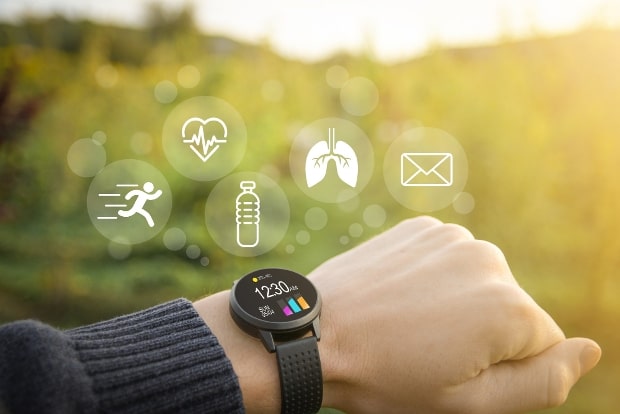The Rise of Health Tracking Wearables: Revolutionizing Personal Wellness

Introduction:
In an era where technology is seamlessly integrated into daily life, health tracking wearables have emerged as a cornerstone of personal wellness. These devices, ranging from smartwatches to fitness bands, offer users the ability to monitor various aspects of their health and fitness in real-time. In this article, we explore the burgeoning trend of health tracking wearables and their impact on individual well-being.
The Evolution of Wearable Technology:
From humble beginnings as simple pedometers to sophisticated multi-functional devices, wearable technology has undergone a remarkable evolution. Early fitness trackers primarily focused on step counts and basic activity tracking. However, with advancements in sensor technology and data analytics, modern wearables now offer a comprehensive suite of health monitoring features.
Key Features and Functionality:
Health tracking wearables are equipped with an array of sensors that collect data on various physiological metrics. Heart rate monitoring, sleep tracking, calorie expenditure estimation, and GPS tracking are among the many features integrated into these devices. Additionally, some wearables offer advanced functionalities such as stress level monitoring and blood oxygen saturation measurement.
Impact on Fitness and Exercise:
One of the primary benefits of health tracking wearables is their ability to enhance fitness and exercise routines. By providing real-time feedback on workout intensity, duration, and calorie burn, these devices empower users to optimize their fitness regimens for better results. Furthermore, the gamification elements present in many wearables, such as achievement badges and challenges, serve as motivational tools to keep users engaged and active.
Promoting Health Awareness and Accountability:
Beyond fitness, health tracking wearables also promote overall health awareness and accountability. By monitoring vital signs and daily activity levels, users gain valuable insights into their health status and habits. This increased self-awareness can motivate individuals to make positive lifestyle changes, such as adopting healthier eating habits or prioritizing regular exercise.
Integration with Healthcare Ecosystems:
Health tracking wearables are increasingly being integrated into healthcare ecosystems, facilitating remote patient monitoring and proactive healthcare management. Healthcare providers can leverage the data collected by these devices to monitor patients’ health remotely, detect early warning signs of potential health issues, and tailor treatment plans accordingly. This integration holds the promise of improving healthcare outcomes and reducing healthcare costs by promoting preventive care and early intervention.
Privacy and Security Considerations:
As with any technology that collects sensitive personal data, privacy and security considerations are paramount when it comes to health tracking wearables. Manufacturers must adhere to strict data protection standards and provide transparent policies regarding data collection, storage, and sharing. Users should also take proactive measures to safeguard their data, such as enabling device encryption and regularly updating firmware to patch security vulnerabilities.
Conclusion:
Health tracking wearables represent a significant paradigm shift in personal wellness, empowering individuals to take control of their health like never before. With their advanced features, seamless integration into daily life, and potential to revolutionize healthcare delivery, these devices are poised to play a pivotal role in shaping the future of healthcare and well-being.


